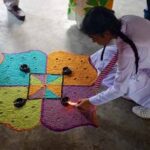The World Health Organization (WHO) has raised alarms about an uptick in respiratory diseases, including COVID-19 and its new sub-variant JN.1, particularly in Southeast Asia. This new variant, classified as a variant of interest due to its swift global spread, has made its way to various states in India. The mutation is believed to have increased the virus’s ability to evade immunity, sparking significant concern among public health experts. Yet, there’s a consensus that there’s no cause for panic as current vaccines appear effective in preventing severe illness and death.
In Singapore, the re-emergence of COVID-19 cases has led to the reinstatement of mask mandates. This move underscores the need for other countries to adopt similar preventative measures to combat this elusive virus. Sri Lanka, in particular, is urged to intensify its response to this emerging health emergency and implement preventive strategies promptly, avoiding its usual delays.
Another global outbreak of COVID-19 could be devastating, not just in terms of human lives but also for the world economy, which is already in a precarious state. According to Fitch Ratings’ latest Global Economic Outlook Report, the world’s growth is expected to plummet to 2.1% in 2024, impacted by monetary tightening, China’s property downturn, and the stagnation of the eurozone economy. Developing countries, including Sri Lanka, currently facing a severe economic crisis, would be hardest hit by a global economic downturn.
The risk of the new COVID-19 variant spreading to Sri Lanka is real, particularly given its proximity and interactions with India, where the variant is already present. Initially, COVID-19 infections tend to be sporadic, but they can escalate rapidly, leading to waves of cases that might necessitate drastic measures like lockdowns— something Sri Lanka can ill-afford amid its economic turmoil.
Health experts in Sri Lanka are advocating for public mask-wearing, a sensible precaution. However, mere advisories may not suffice. The Sri Lankan health authorities need to swiftly evaluate the situation and take decisive actions, potentially making mask-wearing mandatory again and resuming COVID testing while ensuring transparency and avoiding corruption, which has plagued the Health Ministry in the past.
In these trying times, politicians must refrain from exploiting the crisis for their own ends, such as delaying elections under the guise of public health. The country’s economic recovery, achieved at a tremendous social cost, could quickly unravel in the face of a national health emergency, further straining the already overburdened state coffers and healthcare system. The previous government’s downfall was significantly influenced by the COVID-19 pandemic, a history Sri Lanka cannot afford to repeat.



